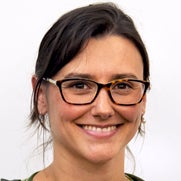
Title
and
Astract
for
Laurence's
talk:
Analysis of Strong Gravitational Lensing Data with Machine Learning
Machine learning methods have seen a rapid expansion in applications to various fields of astrophysics in recent years. In this talk, I will discuss our results on using deep convolutional neural networks and recurrent neural networks to estimate the parameters of strong gravitational lenses from telescope data. Estimating these parameters with traditional maximum-likelihood modeling methods is a time- and resource-consuming procedure, involving several data preparation steps and a difficult optimization process. Moreover, the accuracy of state-of-the-art traditional methods can be impacted by issues such as choice of priors, pixelation, parametrization, etc. I will discuss how, using deep learning, we can circumvent these issues and are able to estimate these parameters and their uncertainties 10 to 100 million times faster than with traditional methods, both for optical and interferometric data. With the advent of large volumes of data from upcoming ground and space surveys and the remarkable speed offered by these networks, deep learning promises to become an indispensable tool for the analysis of large survey data.